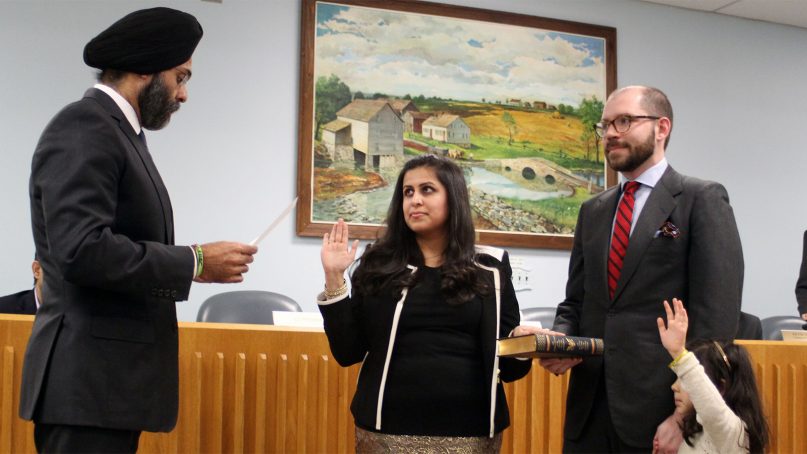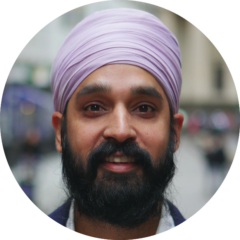(RNS) — Last month, Sadaf Jaffer was sworn in as mayor of Montgomery Township, N.J., a bucolic, if rapidly growing, municipality of about 25,000 just north of Princeton. In that moment, Jaffer became the country’s first female Muslim mayor, first female Pakistani-American mayor and first female South Asian-American mayor.
She might also be the first American mayor with a doctorate from Harvard who specializes in Islam, gender studies and South Asian history. Mayor Jaffer also serves as a postdoctoral research associate in South Asian studies at Princeton University, where she teaches courses on South Asian, Islamic and Asian-American studies.
I had the opportunity to speak with Jaffer about her journey, including what it means to be a political trailblazer and how her unique academic background contributes to her new role. The interview has been edited for length and clarity.
How did you decide to run for mayor?
I decided to run for public office because I didn’t see my values reflected in my elected officials. I’ve been a scholar and activist for some time. If you keep advocating to people who just don’t share your values, you eventually hit a wall. I also believe we shouldn’t ask others to do something we’re not willing to do ourselves. If I want people from diverse backgrounds to run for office, I should also be willing to do it myself.
How does your faith inform your work?
Growing up as a Shia Muslim, I always had this sense that we should fight injustice wherever we find it. Since I decided to pursue research on Islam in South Asia for my Ph.D., I’ve also come to see the ways in which religion and culture have always been intertwined and I find much hope in how cosmopolitan societies have functioned in the past. They certainly weren’t perfect, but I see the Islamic past as one of great beauty and cultural efflorescence. That inspires me for the future.
It’s rare for someone in U.S. politics to have your academic background. Can you talk about how your training as a scholar of Islam, gender and South Asia might bolster your work?
I think the greatest challenge we face in the United States right now is the fraying of our social fabric, so my background in arts, literature and cultural studies has proved especially useful in bringing people together. When an anti-Muslim bias crime happened in my town, I was able to tap into my experience teaching a course on South Asian-American literature and film to provide resources to government officials about Islamophobia as racism.
I’ve also started a monthly discussion group called Montgomery Mosaic, which is affiliated with the national Not in Our Town movement. This has been very impactful in bringing people together in order to understand our common humanity.
You’re not the only Muslim woman to be blazing a trail this year in politics. Ilhan Omar and Rashida Tlaib are now the first Muslim women to serve in Congress. What does it mean to you to be the first female Muslim mayor in the U.S.?
I’m proud to be an example of what is possible for Muslim women in our political system. We stand on the shoulders of generations of activists who have made these opportunities possible. I hope my example helps provide a different vision of what it means to be a Muslim woman in America today and the diversity of perspectives and skills we bring to the table.
I would also say that I hope this helps people understand the importance of getting involved at the local level. Too often, people are so focused on the national and the international that we forget about the local. I hope more people will volunteer and run for local office. We all win when more members of our society are informed and active in their communities.






